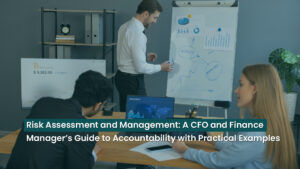A feasibility study shows whether a project or plan is possible and checks its practicality. It is usually done at the beginning of any project or plan. A feasibility study has five main components. Each component considers different aspects of the project. It’s important to consider all five to make a good decision. Our team specializes in conducting a thorough Feasibility Study for Business to ensure its success and sustainability.
Key elements of a comprehensive feasibility study
- Economic Feasibility
- Marketing Feasibility
- Technical Feasibility
- Financial Feasibility
- Management Feasibility
Economic Feasibility
Economic feasibility is a cost-benefit analysis that checks if all necessary inputs and agreements are in place for the business to operate and if the benefits and impacts will be significant.
Economic Feasibility Factors
- Enough resources like workers, buildings, utilities, and materials for a successful project/business
- Signed contracts and those still to be negotiated, with their terms and renewals.
- An assessment of environmental risks.
- A cost comparison will be made to see if the benefits or revenues will be worth the expense.
- An evaluation of the project’s economic impact, such as new markets and development in the sector.
Market Feasibility
A market feasibility study evaluates if a business, product, or project can be successful in a specific market. It focuses on the market’s potential now and in the future and considers the target customers and competition.
Market Feasibility Factors
- Competition
- Analysis of end users
- Marketing Plan
- By product revenue streams
- Industry risks like scalability and supply chain issues
Technical Feasibility
Technical feasibility assesses whether the technology can be relied upon and examines how products or services will be delivered. This includes transportation, business location, and the requirements for technology, materials, and labor.
Technical Feasibility Factors
When evaluating technical feasibility, consider these factors:
Commercial Availability Assessments: Check if necessary products and processes are readily available.
Success Record and Duplication: Review past successes in product/process duplication.
Service Providers’ Experience: Evaluate the expertise of service providers.
Infrastructure: Assess the adequacy of roads, railways, airports, and utilities like water and electricity.
Technology Use and Reliability: Consider the technology’s usage, age, and reliability.
Construction Risks: Identify and evaluate potential risks associated with construction.
Financial Feasibility
Financial feasibility study for business analysis focuses on identifying the necessary elements to ensure a project’s long-term financial sustainability. This involves ensuring sufficient income, credit availability, and cash flow to meet all debt obligations over an extended period. Essentially, it’s about assessing whether the project can generate enough revenue and manage its finances effectively to remain financially viable in the long run.
Financial Feasibility Factors
Financial projections over 5 years: Estimating income and expenses for the next five years.
Revenue & expenses assumptions: Predictions about future income and costs.
Sensitivity analysis: Testing how changes in assumptions affect outcomes.
Accounting policies & cost accounting system: Rules and systems for tracking finances.
Equity contribution and source of repayment: Where investment money comes from and how it will be paid back.
Use of funds: How the money will be spent.
Availability of short-term credit: Access to loans or credit for short-term needs.
Peer industry comparison: Comparing with similar businesses in the industry.
Management Feasibility
Management feasibility evaluates whether the business or organization has the right leadership, skills, and experience to complete a project. It focuses on the qualifications of the board members, team, and overall management capabilities.
Management Feasibility Factors
History: Understand the business or organization’s background, including its achievements, challenges, and market position over time.
Key Staff Review: Evaluate the professional experience and skills of key personnel who play essential roles in the organization.
Key Staff Assessment: Assess the qualifications and character of the management team to gauge their ability to lead and manage effectively.
Why Should You Hire an Expert to Conduct a Feasibility Study in Pakistan?
We’re an expert firm dedicated to ensuring your business succeeds. With our deep industry expertise, we provide customized market analysis, precise financial projections, and thorough operational assessments. There are three compelling reasons to choose our expertise:
- We offer specialized industry knowledge that enhances decision-making and strategy development.
- Our detailed market analysis and financial forecasts give you a clear understanding of potential opportunities and risks.
- We adapt our strategies to fit your specific business needs, ensuring our solutions are practical and effective for your unique situation through a comprehensive Feasibility Study for Business



